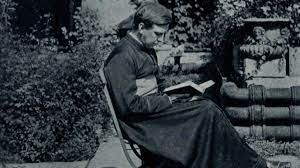In chapter 5 of Part 2, Monsignor Benson deals with the Methodists. He notes that John Wesley (1703-1791) had not originally intended that those who followed his preaching and practices should leave the Church of England, but that by the end of his life, by ordaining people to the priesthood and episcopacy, he had effectively started a new denomination. Yet, in his public statements, a clergyman in it to his dying day, he asserted his Anglicanism. He said that his ordinations were meant to supplement not to supplant the Church of England (167-168).
His first “Methodist Societies,” were guilds and meetings were meant to counter what he say as “the widespread lethargy and indifference of his day.” They were called “Methodists” because they had a method or scheme “of private devotion and life (167)”
The Methodists had quickly split into many sects: “Wesleyan Methodists,” “Primitive Methodists,” “United Methodists,’ and “Calvinistic Methodists,” a fact which Benson calls “a strange irony,” as Wesley “denounced … with all the eloquence at his command … Predestination in the Calvinistic sense” (168). Benson states that only the Wesleyan Methodists can claim a true descent from John Wesley himself.
Their beliefs are basically the same as that of any evangelical Christians, except that they strongly repudiate Calvinist Predestination ; and have a circuit-system and obligatory class-meetings. The circuit system generally means that a number of ministers serve a “circuit” made of several churches. The class system was to allow small groups, usually about twelve people, to meet and discuss their spiritual lives. Benson writes of them that: “They consisted of meetings under a class-leader held once a week; public confession of sin was frequently made, and reconciliations were effected in cases of estrangement; here, too, cases of notorious evil-doing were openly rebuked, and, if necessary, the sinner provisionally excluded from Church fellowship. The meeting concluded with extempore prayer and a hymn or two.”
Benson’s comment on the inevitable decay of the classes is phrased in his inimitable English: “It could hardly be expected that the fervour and simplicity shown in the beginning could continue indefinitely; and the class-meeting of to-day seems little different from an ordinary prayer-meeting. Spiritual “experiences” are related, and thanksgivings often no doubt slightly Pharisaic are offered to God for grace received.” (171)
Now, as evangelical Christians, the Methodists believe in the Divinity of Christ; the Atonement, the forgiveness of sins, and the work of the Holy Spirit upon the individual. They also strongly hold the doctrines of instantaneous conversion and of justification by faith, and Wesley himself had sacramental ideas which sometimes used to approach the Catholic (but this had disappeared even in Benson’s day). What is distinctive, according to Benson is:
The main characteristic of Wesleyanism as first inaugurated, and as claimed to-day by its exponents, is its insistence upon the necessity of personal and individual religion. The movement began as a reaction against the appalling lethargy of the Establishment of those days, and did, as a matter of undoubted fact, an enormous amount to quicken spiritual life and awaken the sense of responsibility in its adherents. … if it can be remembered that in their original inception the Methodist Societies were devotional guilds rather than sects, the essence of the Wesleyan claim will be better understood (170).
Catholics who speak with Methodists, and with Nonconformists generally should understand that, to them, Catholicism is a system of “forms and ceremonies, of outward actions superstitiously believed to please God or to impetrate grace, without any internal correspondence or effort of the soul. It was, in fact, against this kind of formalism that Methodism first raised its voice in protest.” (172) The word “impetrate” means to seek or to beg for, hence here, he is saying that they believe Catholics just ask for grace but make no internal effort. This is almost bizarre for two reasons: first, it is wrong; and second, they teach justification not by works but by faith. I have always felt that this sets up something of a false dichotomy, at least in standard usage.
Benson’s point is that in dealing with them, one might “say something of the enormous wealth of Catholic teaching on the cultivation and direction of the individual soul, of the amazing degree of science devoted to this end, and, above all, of the practical system of Penance.” Benson makes an excellent point here:
In Penance as frequented by devout Catholics there is indeed a “method” unsurpassed in the history of religion, without any of the notorious evils that are bound to accompany, in the long run, the practice of public confession of sin. Here, the soul can only approach the physician at all on the condition of its own absolute humility and sorrow for sin: there is no opportunity for Pharisaism ; there is no danger of that scandal to weaker brethren which the experience of the Church herself discovered to lie in open acknowledgment before the congregation.” (172)
Finally, I will note that, in Australia, many Methodists joined the Uniting Church in 1977, and since then groups like the “Chinese Methodist church” have come to our shores.
